Today is the big day for Canonical and their partners. Ubuntu 20.04 'Focal Fossa' is officially released as their new LTS (Long Term Support) edition along with other desktop flavours like Ubuntu MATE. If you're moving from the previous LTS, you're in for quite a shock. It's a massive release.
Why use a LTS release over the interim Ubuntu releases? The key point is stability. These releases are supposed to be what you go for if you want the best possible experience.
Some of the main changes include:
- Linux Kernel 5.4 and Mesa 20.0 - bringing with it plenty of new hardware support.
- Feral GameMode integration (more info).
- Software Updates: Firefox 75.0, Thunderbird 68.7.0, LibreOffice 6.4.
- ZFS storage upgrades.
- OEM logo now displays during boot up.
- Snap Store replaces the Ubuntu Store.
- A theme refresh (pictured below) with a Light / Dark switcher.
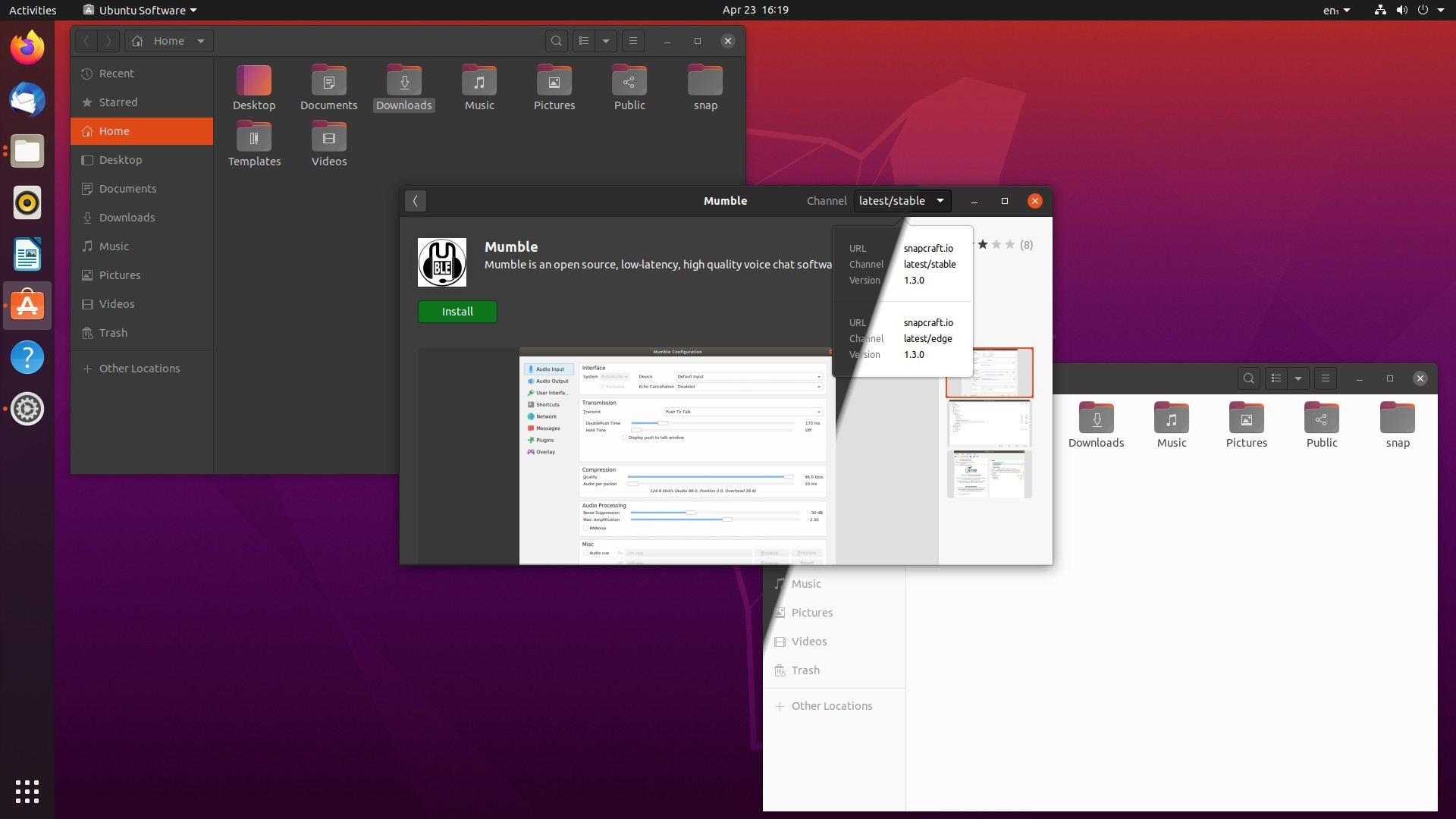 Pictured: A shot to show the difference in the Light / Dark theme.
Pictured: A shot to show the difference in the Light / Dark theme.
You can find out more and download from the below links. Your choice depends on which desktop environment you wish to have. Each edition also has their own release notes and highlighted features, with a lot of work going into each one to improve the out of the box experience:
- Ubuntu (GNOME 3.36) - release notes
- Ubuntu MATE (MATE Desktop 1.24) - release notes
- Kubuntu (Plasma 5.18 LTS) - release notes
- Xubuntu (Xfce 4.14) - release notes
Something else that's worth a read is Canonical's recent survey for 20.04, which they've now published online. Nice to see them be open about things, quite refreshing indeed.
I have to say, I've been running Ubuntu 20.04 during the development cycle as a daily-driver on my work laptop and it hasn't failed me. It's smooth, responsive and it looks fantastic now. They did a great job on tweaking the look. Most importantly though, it's been as stable as a rock. Possibly my favourite Ubuntu release yet.
There's 2 "downsides" (which isn't Ubuntu's fault):
1- some trivial thing needs a extension, as a easier way to change the audio output for example.
2- gaming on wayland is curious, it shows more tearing than X when isn't in sync, but it looks and feels better (somehow), I need to do more tests.
I'm very excited with this release.
Last edited by fagnerln on 23 Apr 2020 at 8:31 pm UTC
But the way they keep trying to push snaps almost makes me want to not update at all, or switch distros permanently. I used to assume that snaps weren't that bad, but after actually having more contact with them I was shocked by how horrible it is. First, snaps had ridiculously bad performance problems; so it was not even a "non-technical users wouldn't even notice" - people did notice, for example how ridiculously slow chromium was. Second, as a system it is way too closed and centralized, which is particularly bad for something that is intended to work across distros (other distros can't just host their own snap repositories, the backend isn't FOSS, and it is entirely developed by Canonical without any cooperation with other distros). And third, Canonical are actively pushing for it to replace other alternatives, which means we can't even ignore it if we don't like it.
I'll wait a bit anyway and probably will update to 20.04 if it isn't too obnoxious to avoid snaps for most things, or if at least it works well. But frankly, I'm already looking to jump boat from Kubuntu, and particularly for something better to recommend for newbies.
"sudo apt install steam steam-devices numlockx"
Forgot something? Oh yeah! gnome-tweak-tool to remove the desktop icons. Personnal preference.
Comes with Nividia driver 440.84. Quite the best you can get. Gamemode pre-installed... No tearing/stuttering issues, great performances and didn't get a single bug... All my tick boxes are checked. Pretty happy about that release. :)
Last edited by Mohandevir on 23 Apr 2020 at 9:16 pm UTC
I'll wait a bit anyway and probably will update to 20.04 if it isn't too obnoxious to avoid snaps for most things, or if at least it works well.
sudo apt purge snapd will get rid of snaps entirely. Easy enough.
Only this time I won't rush to upgrade like I always do, I'll give it some time for early issues to be ironed out, to have more free time myself to properly tweak the system to my liking at to order a NVMe drive to truly enjoy my new OS.
Let me know if someone has installed on ZFS and what are the experiences.
I'll wait a bit anyway and probably will update to 20.04 if it isn't too obnoxious to avoid snaps for most things, or if at least it works well.
sudo apt purge snapdwill get rid of snaps entirely. Easy enough.
Sure, but will any default programs be removed by that - like say, the calculator? (I legit don't know what would happen to installed snaps)
And will the Ubuntu repositories contain non-snap alternatives for stuff? If they stop maintaining stuff in the repos because they now use snaps, it becomes impractical to use the distro without it. (While, presumably, other distros could still have those normally... at least for now)
But the way they keep trying to push snaps almost makes me want to not update at all, or switch distros permanently.
Other distros do the exact same thing, except with Flatpak - Linux Mint is a perfect example here, and I doubt they're the only ones...
First, snaps had ridiculously bad performance problems; so it was not even a "non-technical users wouldn't even notice" - people did notice, for example how ridiculously slow chromium was.
Flatpak has similar issues... Though once a program is running, it should offer comparable performance.
I have been running Linux Mint for the last 9-ish months - which pushes Flatpak hard - and the only noticeable performance hit is when starting a program after a reboot... Depending on the program, there can be a pretty big delay.
But after initially running a program, it's usually just as quick as a Debian-based program.
My experience has been the same on my tablet - the Microsoft Surface Go - with Snap.
Second, as a system it is way too closed and centralized, which is particularly bad for something that is intended to work across distros (other distros can't just host their own snap repositories, the backend isn't FOSS, and it is entirely developed by Canonical without any cooperation with other distros).
I agree with this completely.
At the very least, Canonical should commit to eventually making the backend Open Source - though if I am not mistaken, they have not done so, meaning that for the foreseeable future, the backend is unlikely to transition to Open Source...
I think that in the long-term, this will affect the uptake of Snap, and eventually Flatpak will become the dominant of the two - Open Source doesn't always win in the end, but it usually does, especially in the Linux Community.
And third, Canonical are actively pushing for it to replace other alternatives, which means we can't even ignore it if we don't like it.
Well you can use other alternatives - it's called "Flatpak" and "AppImage", neither of which is all that difficult to install or manage... There are also other - less common - alternatives , if you're really dedicated.
I'll wait a bit anyway and probably will update to 20.04 if it isn't too obnoxious to avoid snaps for most things, or if at least it works well.
sudo apt purge snapdwill get rid of snaps entirely. Easy enough.
Or you could just remove Snap support entirely... Personally, I'd just ignore it if I didn't want to use it - but you have the option to remove it, if you prefer.
Sure, but will any default programs be removed by that - like say, the calculator? (I legit don't know what would happen to installed snaps)
See [here](https://www.omgubuntu.co.uk/2020/02/ubuntu-snap-store-transition).
Last edited by Cyba.Cowboy on 23 Apr 2020 at 11:13 pm UTC
Sure, but will any default programs be removed by that - like say, the calculator? (I legit don't know what would happen to installed snaps)
And will the Ubuntu repositories contain non-snap alternatives for stuff? If they stop maintaining stuff in the repos because they now use snaps, it becomes impractical to use the distro without it. (While, presumably, other distros could still have those normally... at least for now)
That command will get rid of the bit that loads the snaps as well as the snaps themselves. It will give a list of the snaps that are removed so that (assuming you want the applications) you can install them from the package manager (for the calculator and what-have-you) or find a PPA (for chromium).
They want to get real-world usage of snaps (which is why they're included by default), but you won't be missing out (at least for the foreseeable future) by not using snaps. Chromium is an unusual one in that they no longer carry a non-snap version. I forget exactly where I read it but their reasoning was that chromium usage isn't that high (so the test wouldn't inconvenience too many people) and that a browser is exactly the kind of thing that you'd want to be run in a sandbox. That decision doesn't affect me, personally, since I use chromium from a PPA anyway for the hardware video decoding.
I've been using Kubuntu flavour since the beta was released, not a single bug. Such a quality release, impressive!! good job canonical and team!I used to use Kubuntu but defected to Neon LTS a number of years ago. I have been pretty happy with its recent stability. The only thing I miss is 32 bit Wine, but Proton covers most of that use.
I do have some business software that would be really nice to run in Wine, but the Neon dependency chain is just different enough that it is a fool's errand trying to get it to work. I keep thinking that Wine would be a perfect use for snap, but I only find "supporting" wine snaps for other programs that are already pre-packaged. No good for me.
I also use chromium pa, some little annoying thing is that every time I launch it , I get a message of chromium missing Google API dev keys. Do you know a way of getting rid of those messages?
I remember seeing that message, and I don't see that message any more, so I guess I did something to make it go away. (It's my mostly-watching-Netflix-in-bed laptop that uses chromium rather than my main rig). Hang on, I'll see if I can remember.
The PPA lists an elaborate song-and-dance to get API keys, and I definitely didn't do that. Maybe I just turned off whichever service needed the API keys? Sorry, I can't remember. If anything jogs my memory I'll post it.
Edit: it was possibly Google Sync that I turned off.
Last edited by CatKiller on 24 Apr 2020 at 12:09 am UTC
I'll wait a bit anyway and probably will update to 20.04 if it isn't too obnoxious to avoid snaps for most things, or if at least it works well.
sudo apt purge snapdwill get rid of snaps entirely. Easy enough.
Sure, but will any default programs be removed by that - like say, the calculator? (I legit don't know what would happen to installed snaps)
And will the Ubuntu repositories contain non-snap alternatives for stuff? If they stop maintaining stuff in the repos because they now use snaps, it becomes impractical to use the distro without it. (While, presumably, other distros could still have those normally... at least for now)
Hey, thank you both for this! I had a look on my system and sure enough, not only was snapd installed but among the few snaps installed on my system was gnome-calculator. I was wondering why the hell the calculator in Ubuntu took a freaking minute to load. Went ahead and installed the calculator from apt and now it loads in less than a second like a good calculator should... oh, and also I'm removing all of snapd and REPLACING ALL THE OTHER SNAPS WITH PACKAGES THAT ACTUALLY WORK RIGHT. ...And seriously contemplating switching to like, Debian or something.
It actually looks like a meaningful improvement in most aspects; there were many important updates to hardware support and big applications since 18.04, which I mostly had to backport or install in some way (newer mesa fixed several games, newer KDE had some nice features and look for those of us that use Kubuntu, newer libre office had a few important features, and I expect the version of wine in their repositories will be less awful). Plus generally looking nice and bugfixes, as always.
But the way they keep trying to push snaps almost makes me want to not update at all, or switch distros permanently. I used to assume that snaps weren't that bad, but after actually having more contact with them I was shocked by how horrible it is. First, snaps had ridiculously bad performance problems; so it was not even a "non-technical users wouldn't even notice" - people did notice, for example how ridiculously slow chromium was. Second, as a system it is way too closed and centralized, which is particularly bad for something that is intended to work across distros (other distros can't just host their own snap repositories, the backend isn't FOSS, and it is entirely developed by Canonical without any cooperation with other distros). And third, Canonical are actively pushing for it to replace other alternatives, which means we can't even ignore it if we don't like it.
I'll wait a bit anyway and probably will update to 20.04 if it isn't too obnoxious to avoid snaps for most things, or if at least it works well. But frankly, I'm already looking to jump boat from Kubuntu, and particularly for something better to recommend for newbies.
Yea, I agree, snaps suck. I have a use case where I run Ubuntu vdis in Docker container (full UI in docker, it's sick! :D ), and as of 19.10, they no longer have a chromium deb package. If you apt-get install chromium, you get the snapd migration package (it's called something along those lines, i don't remember anymore) and there is no official deb.
The thing is, because snap is basically a container, you can't install it in a Docker container...the snapd service doesn't even work in docker. There are some hacky ways to get it working, but chromium still does not launch. So this was a big problem for me.
To work around this, I have a separate pipeline that builds chromium from source and spits out a deb that I host in a different location (should probably use aptly to host a local repo, haven't got there yet) and then my docker image pipeline fetches the deb from there and installs it. Basically a shitload of work needed to be done to get chromium working in Docker. I haven't tested 20.04 yet, but if they start doing the same for other applications I use in the VDI, I'll probably move to debian or something.
Other distros do the exact same thing, except with Flatpak - Linux Mint is a perfect example here, and I doubt they're the only ones...
I have been running Linux Mint for the last 9-ish months - which pushes Flatpak hardHey, wait a minute. What do you mean? Sure, they added support for flatpaks in their software center (mintinstall) alongside the normal deb packages, but beyond that I haven't noticed them recommending, much less pushing them. No flatpaks installed by default, no deb packages removed in favour of flatpaks or anything like that. Am I missing something?
They did choose to support flatpak instead of snap, if that's what you mean.
Hey, wait a minute. What do you mean? Sure, they added support for flatpaks in their software center (mintinstall) alongside the normal deb packages, but beyond that I haven't noticed them recommending, much less pushing them. No flatpaks installed by default, no deb packages removed in favour of flatpaks or anything like that. Am I missing something?
They did choose to support flatpak instead of snap, if that's what you mean.
Just "clean" installing all my computers with Ubuntu 20.04 LTS now, so I don't have a screenshot to show you...
But like Ubuntu's "snap" Software Center, Linux Mint's equivalent had both the "regular" package and the "Flatpak" package of many software titles - in most cases, the latter was the current version of <software title> and the "regular" package was an older version (e.g. <software title> as a Debian package would be version 1.x, and the Flatpak package of the same software title would be 2.x).
For various reasons - one of which is that Snaps and Flatpak seem to get updated / upgraded quicker than Debian packages - I prefer to use Snaps and Flatpak... So I replace most of the software on my computer with the Snap / Flatpak version, in addition to installing new software as Snaps / Flatpaks, where ever possible.
I'm sure this was not the case for all Flatpaks under Linux Mint - but I use a fair bit of software, and this was my experience for most of those programs...
I have been running Debian Sid for pretty much decades at this point. Sure I've played with other distributions along the way, but mostly stick with Debian Sid. You CAN install snapd and flatpak if you'd like in Debian, but it doesn't try to abuse it's users and force it upon anyone.I'll wait a bit anyway and probably will update to 20.04 if it isn't too obnoxious to avoid snaps for most things, or if at least it works well.
sudo apt purge snapdwill get rid of snaps entirely. Easy enough.
Sure, but will any default programs be removed by that - like say, the calculator? (I legit don't know what would happen to installed snaps)
And will the Ubuntu repositories contain non-snap alternatives for stuff? If they stop maintaining stuff in the repos because they now use snaps, it becomes impractical to use the distro without it. (While, presumably, other distros could still have those normally... at least for now)
Hey, thank you both for this! I had a look on my system and sure enough, not only was snapd installed but among the few snaps installed on my system was gnome-calculator. I was wondering why the hell the calculator in Ubuntu took a freaking minute to load. Went ahead and installed the calculator from apt and now it loads in less than a second like a good calculator should... oh, and also I'm removing all of snapd and REPLACING ALL THE OTHER SNAPS WITH PACKAGES THAT ACTUALLY WORK RIGHT. ...And seriously contemplating switching to like, Debian or something.
Browsing by category in mintinstall seems to list apt packages only, and flatpaks are under their own special category. Searching for packages does list both. All in all, seems like a fairly passive way to "push" flatpaks, and not really comparable to what Canonical/Ubuntu is doing with snaps, IMHO. It's nice that they're there as an option though.Hey, wait a minute. What do you mean? Sure, they added support for flatpaks in their software center (mintinstall) alongside the normal deb packages, but beyond that I haven't noticed them recommending, much less pushing them. No flatpaks installed by default, no deb packages removed in favour of flatpaks or anything like that. Am I missing something?
They did choose to support flatpak instead of snap, if that's what you mean.
Just "clean" installing all my computers with Ubuntu 20.04 LTS now, so I don't have a screenshot to show you...
But like Ubuntu's "snap" Software Center, Linux Mint's equivalent had both the "regular" package and the "Flatpak" package of many software titles - in most cases, the latter was the current version of <software title> and the "regular" package was an older version (e.g. <software title> as a Debian package would be version 1.x, and the Flatpak package of the same software title would be 2.x).
For various reasons - one of which is that Snaps and Flatpak seem to get updated / upgraded quicker than Debian packages - I prefer to use Snaps and Flatpak... So I replace most of the software on my computer with the Snap / Flatpak version, in addition to installing new software as Snaps / Flatpaks, where ever possible.
I'm sure this was not the case for all Flatpaks under Linux Mint - but I use a fair bit of software, and this was my experience for most of those programs...
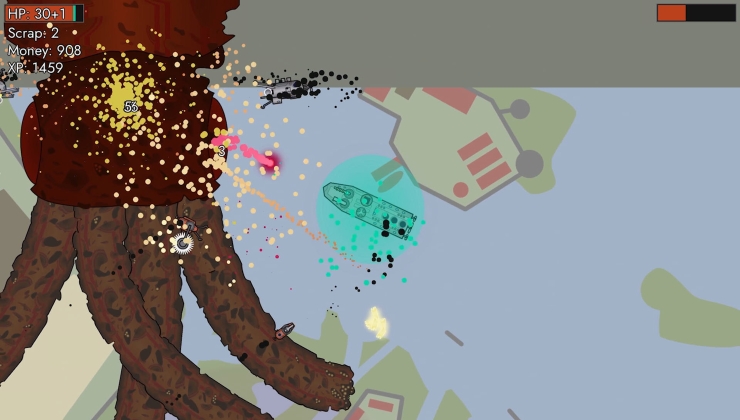
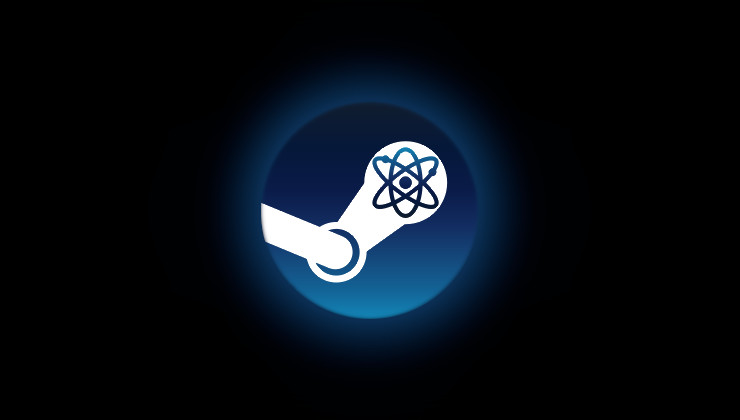
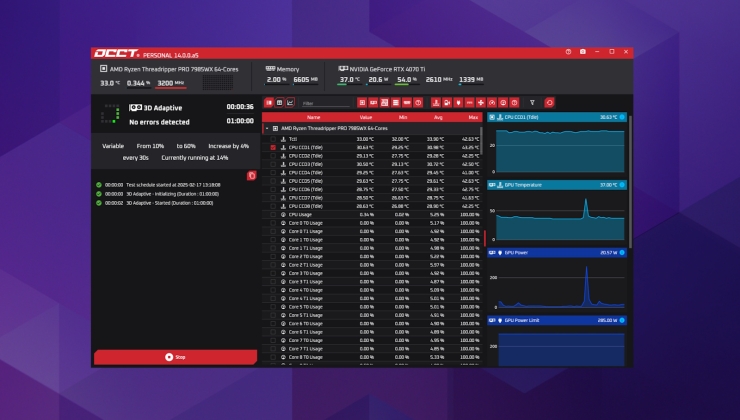
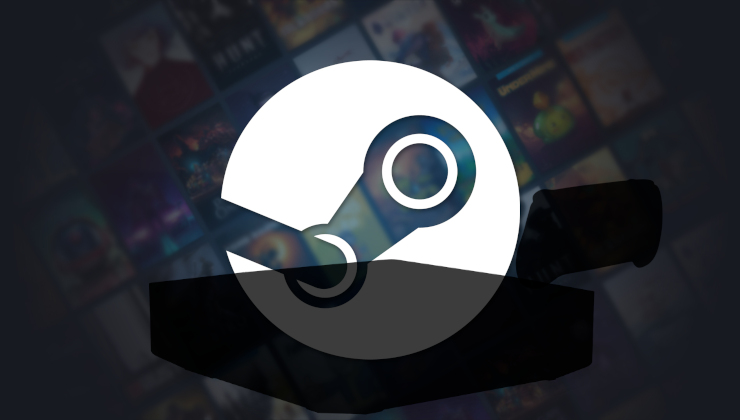









 How to set, change and reset your SteamOS / Steam Deck desktop sudo password
How to set, change and reset your SteamOS / Steam Deck desktop sudo password How to set up Decky Loader on Steam Deck / SteamOS for easy plugins
How to set up Decky Loader on Steam Deck / SteamOS for easy plugins
See more from me